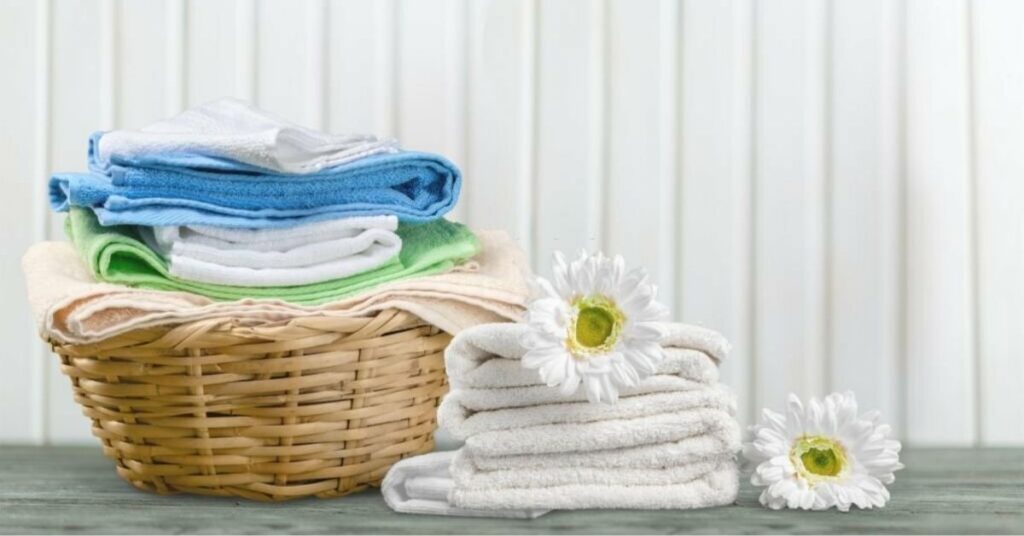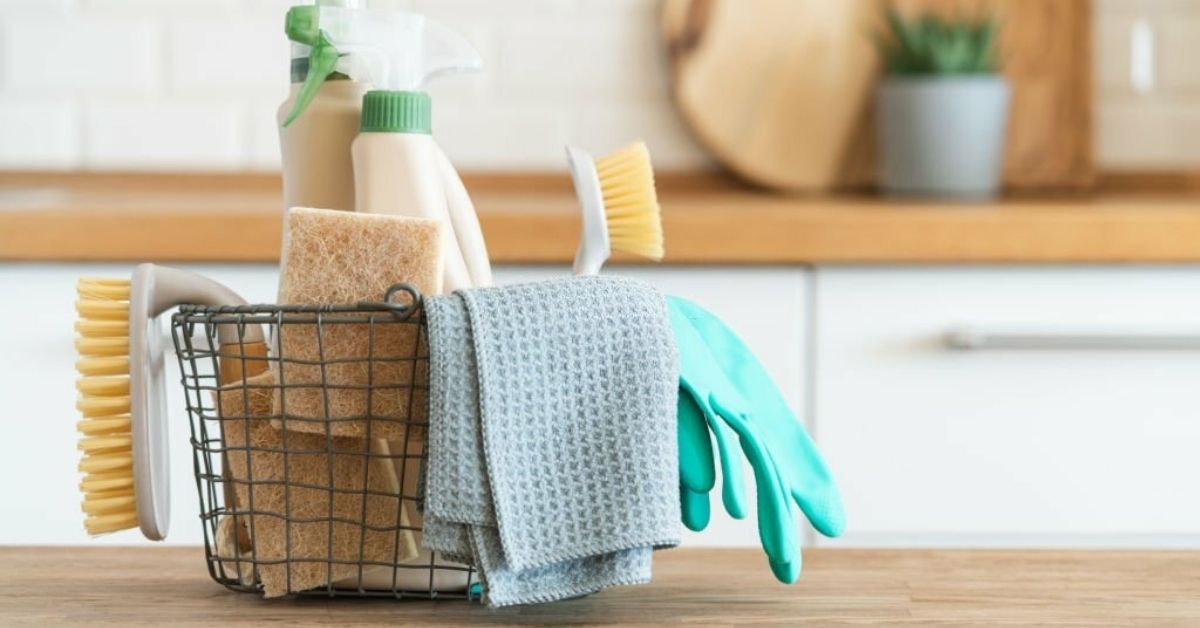Eco-Friendly Cleaning: Tips for a Greener Home
Eco-friendly cleaning, often referred to as green cleaning, has become a vital aspect of sustainable living in the modern world. As our awareness of environmental issues grows, so does the understanding of the impact our daily choices, even in seemingly mundane activities like cleaning, can have on the planet. In this guide, we’ll explore the importance of adopting eco-friendly cleaning practices, the hazards associated with conventional cleaning products, and provide practical tips for creating a greener home.
The Hazards of Conventional Cleaning Products
Conventional cleaning products, laden with various chemicals, pose a significant threat to both the environment and human health. Many common cleaning agents contain volatile organic compounds (VOCs) such as ammonia and chlorine, which can contribute to air pollution and have adverse effects on respiratory health. These chemicals often find their way into water systems, causing further environmental harm. Additionally, the packaging of traditional cleaners, often made of non-recyclable materials, contributes to the global waste problem.
Beyond the environmental impact, the health risks associated with using these products are concerning. Prolonged exposure to the chemicals in conventional cleaners has been linked to respiratory issues, skin irritation, and other health problems. The use of these products can also result in poor indoor air quality, especially in enclosed spaces.
Benefits of Eco-Friendly Cleaning
Embracing eco-friendly cleaning practices comes with a myriad of benefits. Firstly, it significantly reduces the environmental impact associated with cleaning. By opting for natural cleaning agents and sustainable tools, you contribute to the preservation of ecosystems and minimize pollution.

A key advantage of green cleaning is the creation of healthier living spaces. The absence of harmful chemicals means better indoor air quality, reducing the risk of respiratory issues and allergies. Families with young children or individuals with sensitivities particularly benefit from this shift to eco-friendly cleaning.
Moreover, adopting eco-friendly cleaning practices aligns with the broader goal of sustainable living. It reflects a conscious effort to reduce one’s carbon footprint and make choices that promote long-term environmental well-being.
Essential Eco-Friendly Cleaning Supplies
To embark on a journey toward a greener home, it’s essential to have the right eco-friendly cleaning supplies. Natural cleaning agents such as vinegar, baking soda, and lemon juice can serve as powerful alternatives to commercial cleaners. Vinegar, for instance, is an excellent all-purpose cleaner and can effectively combat bacteria and mold. Baking soda is a gentle abrasive that works well for scrubbing surfaces, while lemon juice adds a pleasant fragrance while cutting through grease.
When it comes to cleaning tools, opting for those made from sustainable materials is crucial. Microfiber cloths, which can be reused many times, are highly effective in trapping dust and dirt. Reusable sponges made from natural materials are a sustainable alternative to disposable ones. Additionally, consider using mop heads made from bamboo or other renewable resources.
DIY Green Cleaning Recipes
Creating your own eco-friendly cleaning solutions is not only cost-effective but also allows you to control the ingredients, ensuring a truly green cleaning experience. Here are some simple DIY recipes for common household cleaners:
All-Purpose Cleaner: Combine equal parts water and vinegar in a spray bottle. Add a few drops of essential oil (such as tea tree oil) for added antibacterial properties and a pleasant scent.
Window and Glass Cleaner: Mix one part water with one part rubbing alcohol and a tablespoon of vinegar. Apply and wipe with a lint-free cloth for streak-free windows.
Bathroom Cleaner: Create a paste using baking soda and water. Apply the paste to surfaces like tiles and grout, scrub, and rinse. Add a few drops of essential oil for fragrance.
Floor Cleaner: Mix a quarter cup of vinegar with a gallon of warm water for a natural floor cleaner. This is suitable for various flooring types, including hardwood and tile.
Air Freshener: Combine water with a few drops of your favorite essential oil in a spray bottle. Spritz around the home for a natural and refreshing scent.
Tips for a Greener Cleaning Routine
Transitioning to an eco-friendly cleaning routine involves more than just changing the products you use. Consider the following tips to make your cleaning routine truly green:
- Read Labels and Choose Environmentally Friendly Products: When purchasing cleaning products, read labels carefully. Look for products with biodegradable ingredients, minimal packaging, and cruelty-free certifications. Many companies now offer eco-friendly alternatives.
- Use Minimalist Packaging and Bulk Refills: Reduce your environmental impact by choosing products with minimalist packaging. Some companies offer bulk refill stations, allowing you to reuse containers and minimize waste.
- Opt for Reusable Cleaning Tools: Invest in high-quality, reusable cleaning tools such as microfiber cloths and washable mop heads. These not only reduce waste but also save you money in the long run.
- Proper Waste Disposal of Cleaning Products: Dispose of cleaning products properly. Many communities have specific guidelines for disposing of household chemicals. Avoid pouring them down the drain or into the soil.
Eco-Friendly Laundry Practices
The laundry room is another area where you can implement eco-friendly practices. From choosing green laundry detergents to energy-efficient washing habits, there are several steps you can take to make your laundry routine more sustainable.

Choosing Green Laundry Detergents: Opt for laundry detergents labeled as eco-friendly or those that are plant-based. These options typically contain fewer harmful chemicals and are packaged in more environmentally friendly materials.
Energy-Efficient Washing Practices: Reduce your energy consumption by washing clothes in cold water. About 90% of the energy used by washing machines goes into heating water. Additionally, wait until you have a full load before running the machine to maximize efficiency.
Air-Drying Clothes: Whenever possible, air-dry your clothes instead of using a dryer. Not only does this save energy, but it also extends the lifespan of your clothing. If outdoor drying isn’t an option, consider using indoor drying racks.
Sustainable Cleaning in Different Areas of the Home
Each area of your home presents unique cleaning challenges and opportunities for eco-friendly practices.
Kitchen: In the kitchen, where food preparation and consumption occur, it’s crucial to use safe and natural cleaning agents. Vinegar and baking soda can effectively clean surfaces, and reusable, washable dishcloths are a sustainable alternative to paper towels.
Bathroom: Bathrooms can be prone to mold and mildew, but natural agents like vinegar and baking soda are effective at tackling these issues. Reusable scrub brushes made from sustainable materials can replace disposable options.
Living Spaces: Living rooms and common areas benefit from regular dusting and vacuuming. Microfiber cloths and washable dusters are excellent for trapping dust without the need for disposable cleaning wipes.
Bedroom: In bedrooms, focus on natural solutions for dusting and cleaning surfaces. Additionally, consider using natural fiber bedding, which is not only comfortable but also environmentally friendly.
Overcoming Challenges in Adopting Eco-Friendly Cleaning Habits
Adopting eco-friendly cleaning habits may present some challenges, but with awareness and commitment, these can be overcome.
- Initial Cost Considerations: While some eco-friendly products may have a higher upfront cost, consider it an investment in your health and the environment. Many of these products are concentrated and last longer than conventional alternatives, ultimately saving you money in the long run.
- Adjusting to Natural Cleaning Product Scents: Natural cleaning products often have a different scent than their chemical-laden counterparts. Embrace the fresh, clean aroma of natural ingredients, or experiment with essential oils to customize scents to your liking.
- Addressing Deep Cleaning Needs: For tougher cleaning tasks, such as deep stains or mold removal, it may be tempting to resort to harsh chemicals. However, there are effective natural alternatives. For instance, a paste of baking soda and water can be excellent for scrubbing away tough stains.
Educating Others and Advocating for Eco-Friendly Cleaning
One person’s commitment to eco-friendly cleaning can have a ripple effect when shared with friends, family, and the community.
- Sharing Information with Friends and Family: Spread awareness by discussing the benefits of eco-friendly cleaning with friends and family. Share DIY recipes and tips to inspire others to make the switch.
- Community Initiatives for Green Cleaning: Join or initiate community programs that promote green cleaning practices. This could include workshops, neighborhood clean-up events, or information sessions on the environmental impact of conventional cleaning products.
- Supporting Environmentally Conscious Brands: Choose to support brands that prioritize sustainability. Many companies now offer a range of eco-friendly cleaning products, from detergents to scrub brushes. By choosing these products, you contribute to the demand for sustainable alternatives.
Conclusion
In conclusion, adopting eco-friendly cleaning practices is a tangible and impactful way to contribute to a healthier planet and living space. From understanding the hazards of conventional cleaning products to embracing natural alternatives and sustainable cleaning tools, there are numerous steps you can take to create a greener home.
In a world where eco-friendliness matters, your cleaning choices make a difference. Start your journey toward a sustainable lifestyle today. Here is a Professional Cleaning Services for a spotless, eco-conscious clean. By incorporating these practices into your daily routine, educating others, and advocating for sustainable choices, you contribute to a collective effort toward a more environmentally conscious and sustainable future. Feel free to contact with us if you have any queries.

